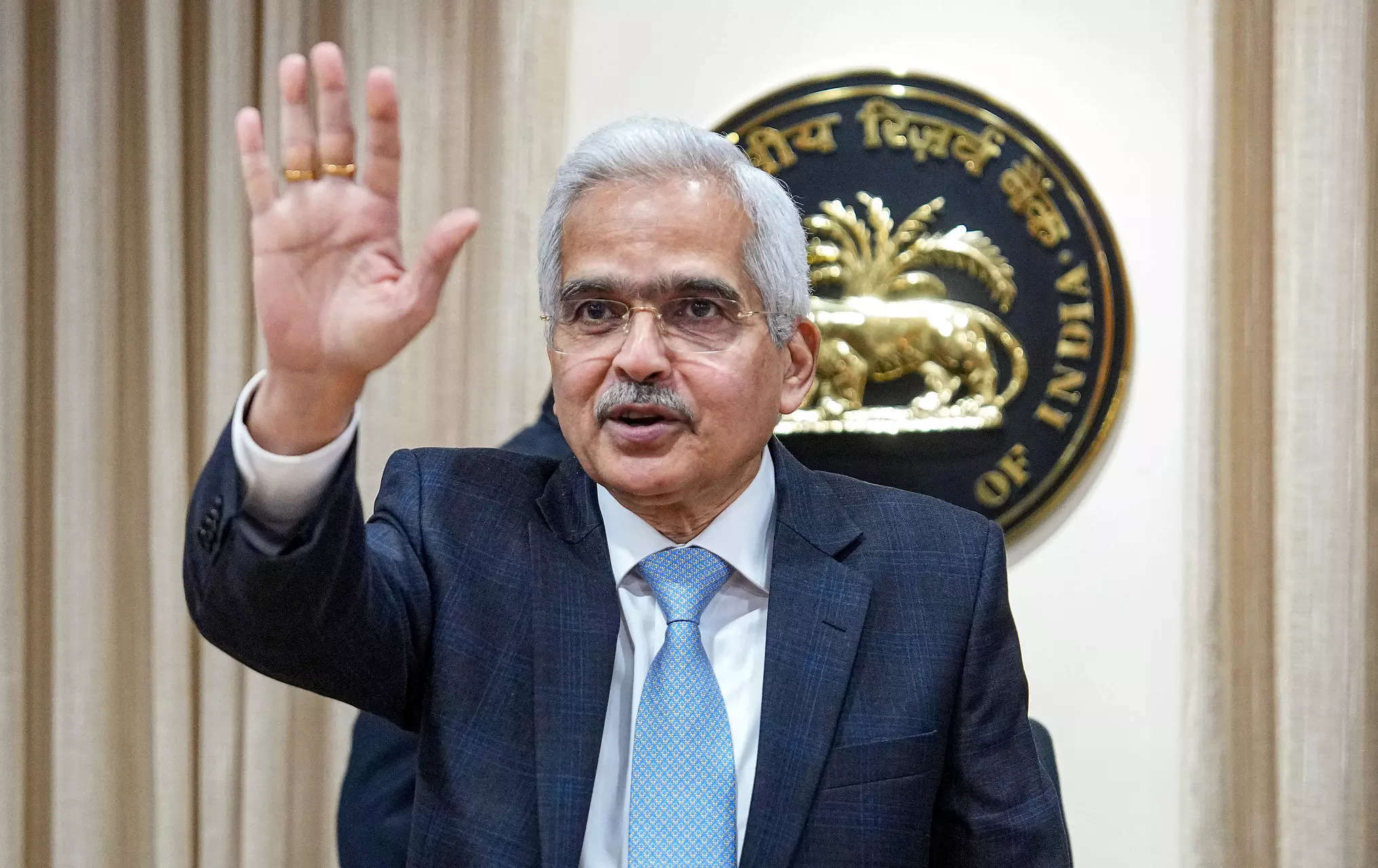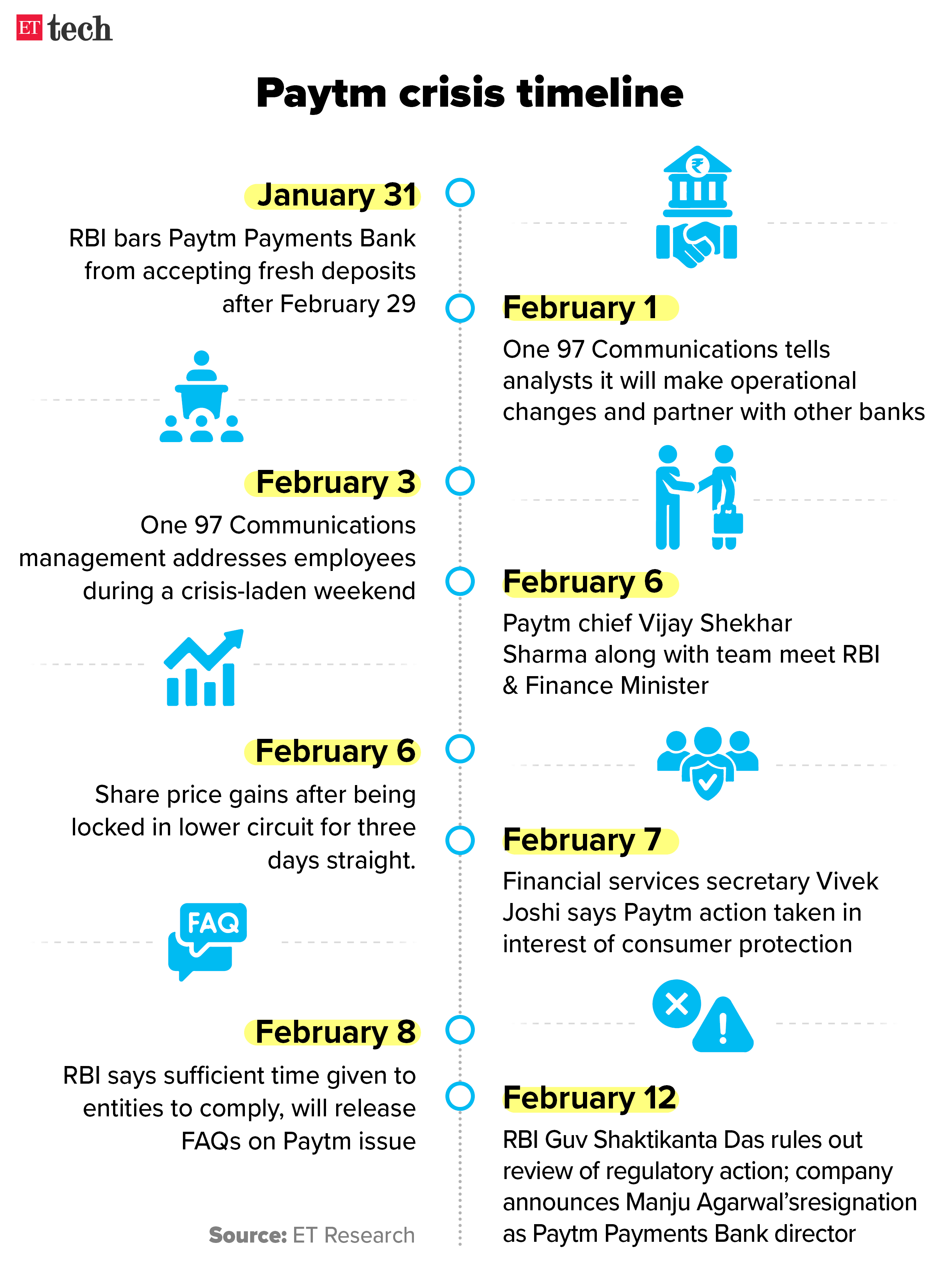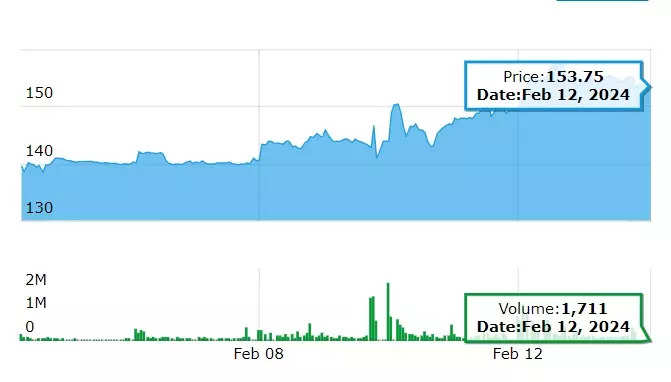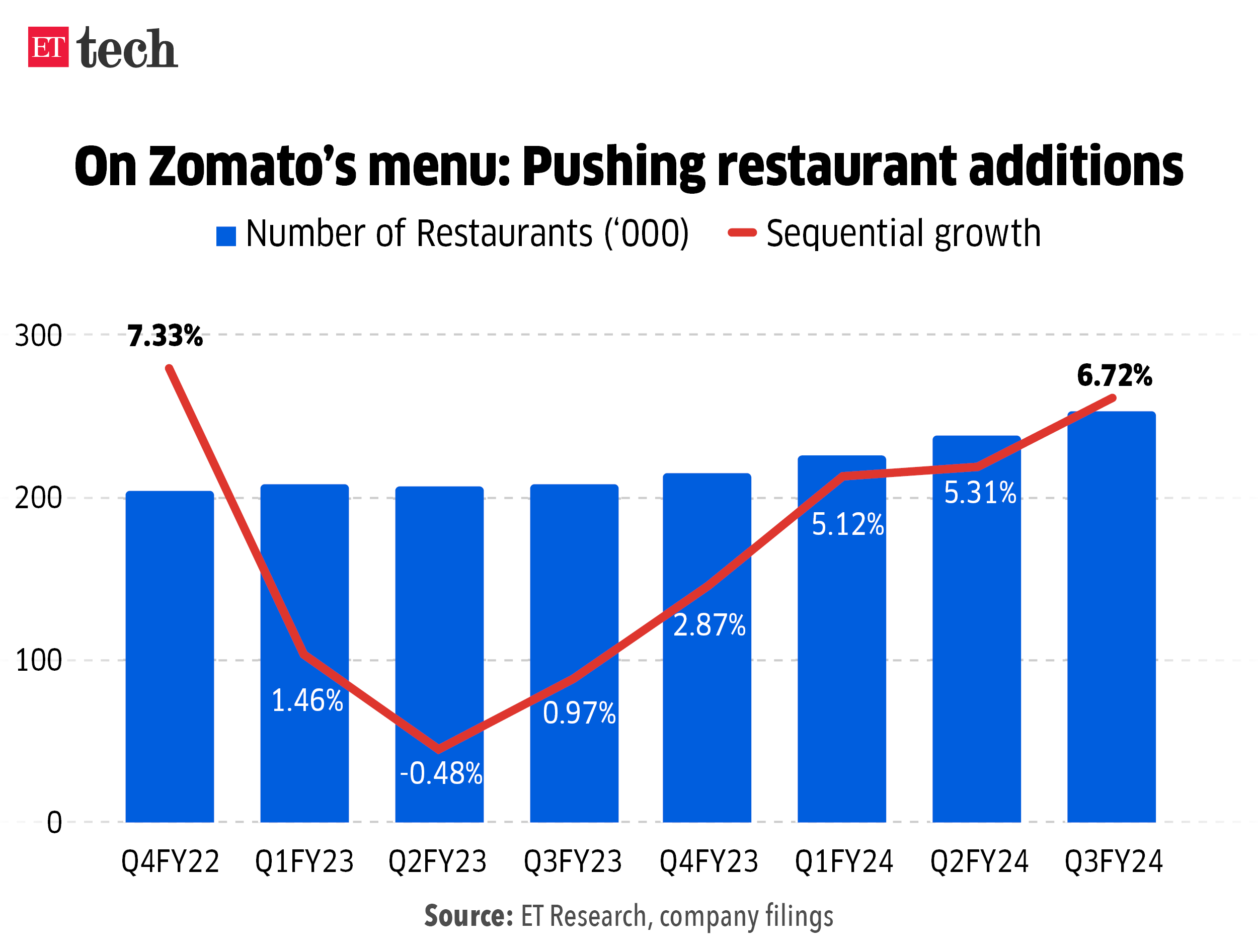Also in this letter:
■ Zomato hits fresh 52-week high
■ A new frontier for Indian consumer electronics
■ Navi Finserv to raise Rs 600 crore
Hardly room to review action against Paytm Payments Bank: RBI Guv

Reserve Bank of India governor Shaktikanta Das on Monday said there is “hardly any room for review” of the central bank’s decision against Paytm Payments Bank.
What did he say? Das said the RBI takes action against regulated entities “only after a comprehensive assessment.” Das had said on February 8 that the action was taken due to “persistent non-compliance” by the Vijay Shekhar Sharma-led fintech company.
FAQ in the works: The governor reiterated that the central bank will issue a set of FAQs (Frequently Asked Questions) on the developments around Paytm this week.

“Wait for FAQ that will have a set of clarifications related to customers of PPBL as our priority is customers should not be inconvenienced. Customer interest and depositors interest is uppermost for us,” Das said.
Also read | Paytm’s Vijay Shekhar Sharma discussed exiting board, removing Paytm from bank name

Manju Agarwal, former independent director, Paytm Payments Bank
Board member quits: One 97 Communications, the entity that operates brand Paytm, on Monday informed the exchanges that independent director Manju Agarwal has resigned from its associate company, Paytm Payments Bank (PPBL).
Earlier, Shinjini Kumar, a former Bank of America and PricewaterhouseCoopers (PwC) executive, had stepped down from the bank’s board in December.
Catch up quick: Paytm on February 9 said it has formed a group advisory committee to improve compliance and navigate regulatory challenges. The three-member panel will be led by former Securities and Exchange Board of India (Sebi) chairman M Damodaran.
Read our top stories on the Paytm crisis:
Indian startups urge Google to not delist app developers from Play Store

A clutch of Indian startups have written to tech giant Google requesting it not to delist them or take ‘any precipitative steps’ against app developers till March 19, when their Special Leave Petition (SLP) comes up for hearing.
Why the letter? The Supreme Court on Friday refused to restrain Google from ‘delisting’ apps of developers, startups and others from its Play Store. This means Google Play Store can remove or delist these apps if they don’t agree with the US tech major’s billing policy.
Verbatim: “Around 30 companies wrote to Google on Monday requesting not to be delisted until the SLP is heard,” a source told ET. “We expect more companies to join in and send the letter to Google as we are all completely dependent on the Play Store.”
In the letter, the companies said any precipitative step taken by Google would be “extremely detrimental” to all the participants of the ecosystem comprising startups and app developers.
“All this while from the time of initiation of the litigation before the High Court of Madras in March 2023 till now, we have been protected against any delisting from the Google Play Store by way of an interim order and have been making payments to you at the rate of 4% on download and in-app revenue,” the startups said.
Catch up quick: The app developers had filed an SLP against the judgment delivered by the Madras High Court on January 19, which was listed on February 9 before the Supreme Court. The Supreme Court directed the SLP to be listed on March 19.
Zomato hits fresh 52-week high; Mamaearth surges, then erases gains

Shares of food-delivery platform Zomato are on a roll, with the scrip hitting a fresh 52-week high of Rs 158.70 on the BSE on Monday. The stock has extended its gains to 10% over the last two sessions on the back of strong December quarter earnings that were much higher than Street estimates.
Stock movement: The stock is currently trading above its 50-day and 200-day simple moving averages (SMAs), and the two-day rally has further dragged it into the overbought zone. It has delivered returns of 200% over the past 12 months. On Monday, it ended the session up 2.94% at Rs 153.85 on the BSE.
Zomato’s market capitalisation crossed $16 billion.

Source: BSE
Brokerage call: Following the earnings, HSBC and Nuvama recommended ‘buy’ views on the stock and raised their price targets, while Macquarie appeared unimpressed as it reiterated its ‘Underperform’ rating.
HSBC maintained a ‘buy’ on Zomato and hiked the target price to Rs 163 from Rs 150 earlier. There were enough reasons to cheer the company’s Q3 results, it said.
Also read | Subdued consumer spends weigh on food-delivery growth: Zomato
Robust Q3 numbers: Zomato’s third-quarter earnings beat estimates on the back of strong growth in food delivery and hyperpure businesses. Net profit jumped nearly fourfold (283%) quarter-on-quarter (QoQ) to Rs 138 crore. Revenue from operations rose 69% year-on-year to Rs 3,288 crore.
Betting on restaurants: Last week, Zomato in its Q3 earnings indicated restaurant additions on its platform as a significant contributor to the 27% year-on-year growth in the gross order value (GOV) at its food-delivery business, considering a broader slowdown in discretionary spending.

A look at Zomato’s total number of food-delivery restaurant partners over the last eight quarters shows that the Gurugram-based company has stepped up onboarding of new restaurants on the platform.
Mamaearth reverses gains: Mamaeath parent Honasa Consumer reversed gains from early trade after rising almost 10% on the BSE, to end the day up 1.84% at Rs 440.70.
Indian consumer electronics break boundaries; export surge to the US, Europe

Exports of made-in-India products to developed markets such as the US and Europe might soon become a frontier for Indian consumer electronic manufacturers. Earlier, such exports were only limited to neighbouring countries, the Middle East or African nations.
Driving the news: Companies like Havells, Dixon, Voltas and Blue Star have said in their December quarter earnings call that they are forming a base for exports in developed nations like the US.
Who said what? Havells India chairman and MD Anil Rai Gupta said the company has formed a subsidiary in the US to distribute air-conditioners there.
Dixon Technologies MD Atul Lall told analysts there will be a scale-up of exports of Motorola smartphones being produced in India, with almost 28-30% of the production to be exported to the US.

Tata-owned Voltas said it has received export orders for frost-free refrigerators and dishwashers from Arçelik, which sells appliances in Europe under the Beko brand.
The rationale: For most of the companies in the electronic sector in India, the import bill is higher than the revenue they earn from exports. This, they have indicated, will change with higher value-addition in manufacturing in India including components and efforts to open up newer and developed markets for exports.
Sachin Bansal’s Navi Finserv to raise Rs 600 crore through NCDs

Navi Finserv founder Sachin Bansal
Flipkart cofounder Sachin Bansal’s lending startup Navi Finserv is looking to raise Rs 600 crore through non-convertible debentures (NCDs).
Tell me more: The bonds will have tenors of 18, 27 and 36 months with effective yields ranging from 10.4% to 11.19%, Navi Finserv said in a statement.
The company had raised around Rs 950 crore through two tranches of NCDs previously. The current tranche will go live on February 26.
Jargon buster: NCDs are fixed-income long-tenure instruments through which large companies raise public money.
FY23 report card: Navi Finserv reported a net profit of Rs 172 crore in FY23, on a total income of Rs 1,377 crore, as per latest filings in the public domain. Its total managed assets stood at Rs 9,788 crore at the end of the last fiscal.
We reported in January that Navi Finserv is yet to take off in a big way. The company wanted to scale up its home loan disbursal to Rs 200 crore a month, back in 2022, but that growth has been elusive.
Today’s ETtech Top 5 newsletter was curated by Gaurab Dasgupta in New Delhi and Megha Mishra in Mumbai.




